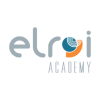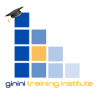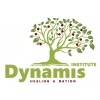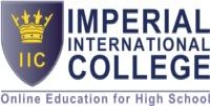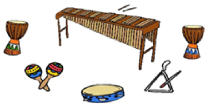Technical Matric
TECHNICAL MATRIC (NATED) - Phased out in 2021
This option is ideal for homeschool learners who are technically inclined. If they do not want to follow the academic matric route in their home education , and rather work in a technical field, then a Technical Matric is an option to look into. The N3 Technical Matric can be completed at any stage of their lives, full-time, part-time or from home via distance learning. This option will allow them to study while they are working and will build their skill set specifically for the technical job they are in.
Where can I study?
The N courses or NATED / Report 191 programmes are delivered under the auspices of the Department of Higher Education and Training and quality assured by Umalusi. These programmes can be followed at public or private institutions like TVET colleges, NTek, Oxbridge Academy, Soltek etc.
How long does it take?
Each N-level can be completed in about ten weeks. The N-levels have at least four subjects. Examples of subjects that are offered on N-level are Maths, Engineering Science, Engineering Drawings and trade specific subjects like Motor mechanical theory, Electrical trade theory etc.
After completion of the theory the student complete a 113 week or 2 year practical apprentice training. Thereafter a student writes a trade test and become a qualified artisan.
Subjects
To obtain an Umalusi technical matric certificate via this route, the candidate must pass four N3 subjects as well as Business Afrikaans and Business English. Unfortunately these language subjects are being phased out and a limited number of institutes still offer these language subjects. One of these institutes is Technicol SA http://www.technicolsa.co.za/
Minimum requirements for a trade test?
Students need to complete the compulsory theoretical subjects before they can do a trade test. These include N2 Mathematics, N2 Engineering Science, N2 Trade Theory subject and related N2 Trade Theory subject of their choice.
There is also a compulsory practical training component of 113 weeks. This training must be accompanied by a SETA registration and SETA log book.
All apprentice training and trade test qualification is done under the control of the Department of Labour and not by the Department of Higher Education and Training (DHET). The minimum requirement is a N2 qualification.
How much does it cost?
Costs vary depending if it is a private or public college. At some TVET colleges it costs around R800 per subject while some private institutions charge R1600 per subject. Technicol charges R2500 per subject (including exams) for Business Afrikaans and Business English as well as other technical subjects.
Advantages of a technical matric
- It can be done in Afrikaans or English
- It is affordable and can be completed in stages.
- Students can study while they work.
- An academic matric can get you into university, while a technical matric might not. A technical matric can, however, open up many opportunities in terms of jobs and further studies at N4 - N6 level as well as studies at Universities of Technology.
Disadvantages of a technical matric
- Difficult to obtain an Umalusi matric certificate which is the known certificate in the industry with regards to job and tertiary study application.
- Might not get access to tertiary institutes without language subjects.
NATIONAL CERTIFICATE VOCATIONAL (NC(V))
This is a national senior certificate equivalent which requires a 3 year full time study at a FET or TVET college. Although the Umalusi directive mention part time studies none of the above mentioned colleges offer the NC(V) part time.
The National Certificate Vocational or NC(V) programmes are delivered under the auspices of the Department of Higher Education and Training and quality assured by Umalusi.
The National Certificate Vocational or NC(V) is a technical qualification and an alternative option to an academic Matric certificate. It is equivalent to a matric certificate but the student develops practical skills and knowledge of the workplace in a simulated environment or in a real workplace.
Once they have completed their National Certificate Vocational they can become a qualified artisan by doing a 3-5 year apprenticeship and afterwards write and pass the trade test. They can also look for a job after completion of the vocational matric or apply to a university or college to do a;
Higher Certificate programme at NQF level 5
National Diploma at NQF level 6
Bachelor’s Degree at level 7
What are the Requirements for a National Certificate: Vocational?
The minimum requirements to study a National Certificate (V) are any ONE of the following:
- Grade 9.
- Adult Basic Education and Training (ABET) certificate.
- Recognised NQF1 qualification.
- Bridging programme.
- Recognition of Prior Learning (RPL) programme, that meets the requirements for studying an NQF Level 2 programme.
What is the NQF Level of a National Certificate: Vocational?
The NQF level of your National Certificate Vocational depends on which year of your studies you are in.
- Year 1 – NQF 2
- Year 2 – NQF 3
- Year 3 – NQF 4
Your final qualification will be an NQF 4 qualification which is on the same level as a National Senior Certificate.
Where do I study?
The NS (V) are offered full time at Tvet and FET colleges. To obtain the Matric equivalent certificate you will have to complete 3 years full-time. There are 3 NC(V) levels and each level takes 1 year to complete. You will receive a certificate after every level.
What can you study?
Students need to choose 7 subjects from a subject list. Below are some of the vocational fields options. (each field has sub-field subjects)
- Agriculture and Nature Conservation
- Culture and Art
- Business, Commerce and Management
- Communication
- Education, Training and Development
- Human and social studies
- Manufacturing, Engineering and Technology,Civil Engineering and Building Construction
- Law and Military Science
- Health Science and Social Services
- Physical, Mathematical, Computer and Life Science
- Services
- Physical Planning and Construction
To pass a learner must achieve 40% in an official language, 30% in Maths or Math literacy, 40% in Life Orientation and 50% in four Vocational subjects (sub-fields listed above)
Internal assessment counts for 25% of the mark and external assessment 75%.
For more information follow this link: https://www.umalusi.org.za/docs/directives/2013/directives_ncv.pdf
Legal & Research
Centres
Homeschool ABC
Support
Curriculums
Elroi Academy (Gr 8 - 12)
Elroi Academy – Top-Rated Distance Education Provider in South ...
Ginini Training Institute
Ginini Academy is an EdTech home education content provider ...
Impaq: Homeschool & Online ...
Impaq: The leading homeschooling curriculum provider in South ...
Has no content to show!










